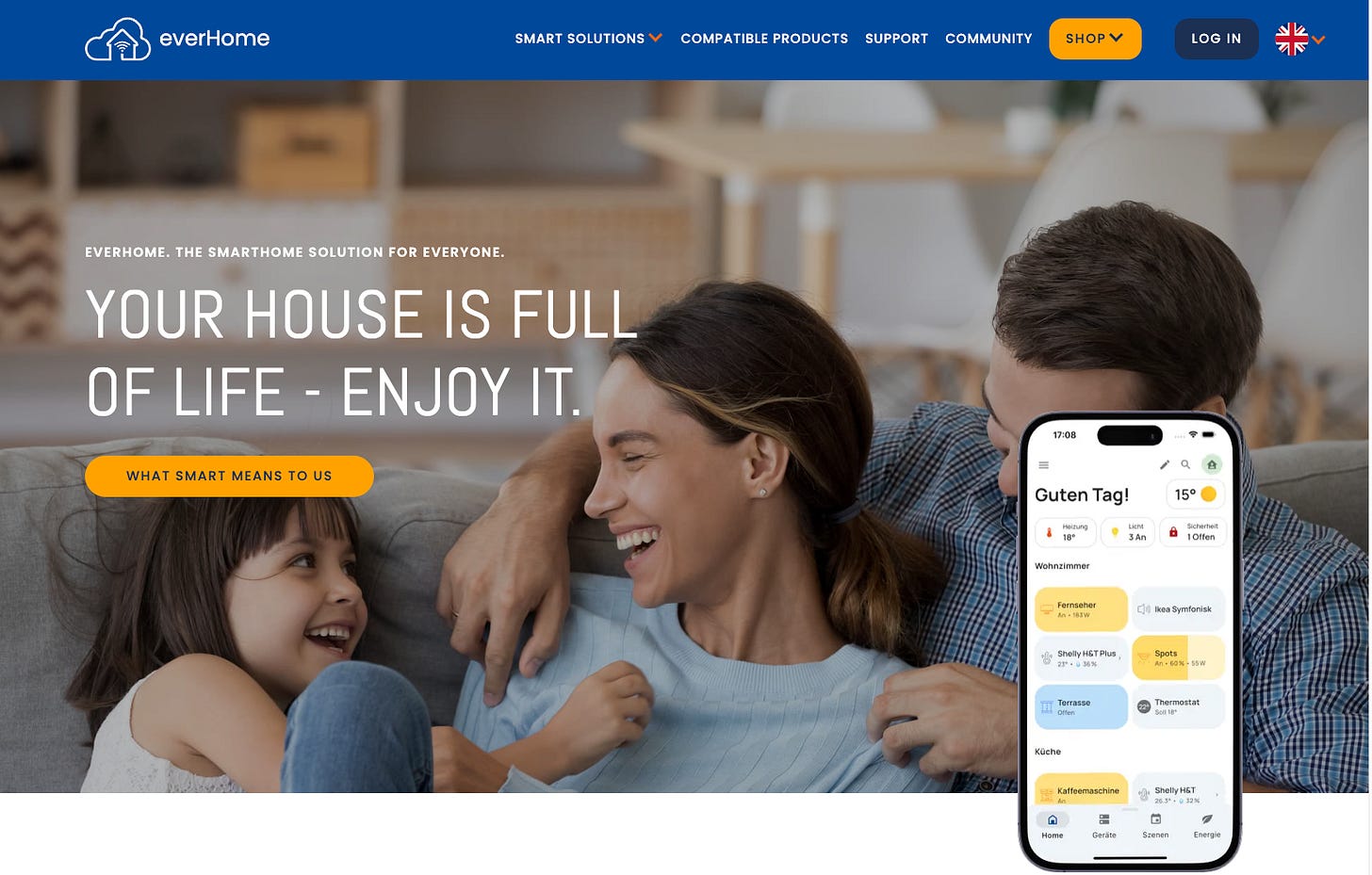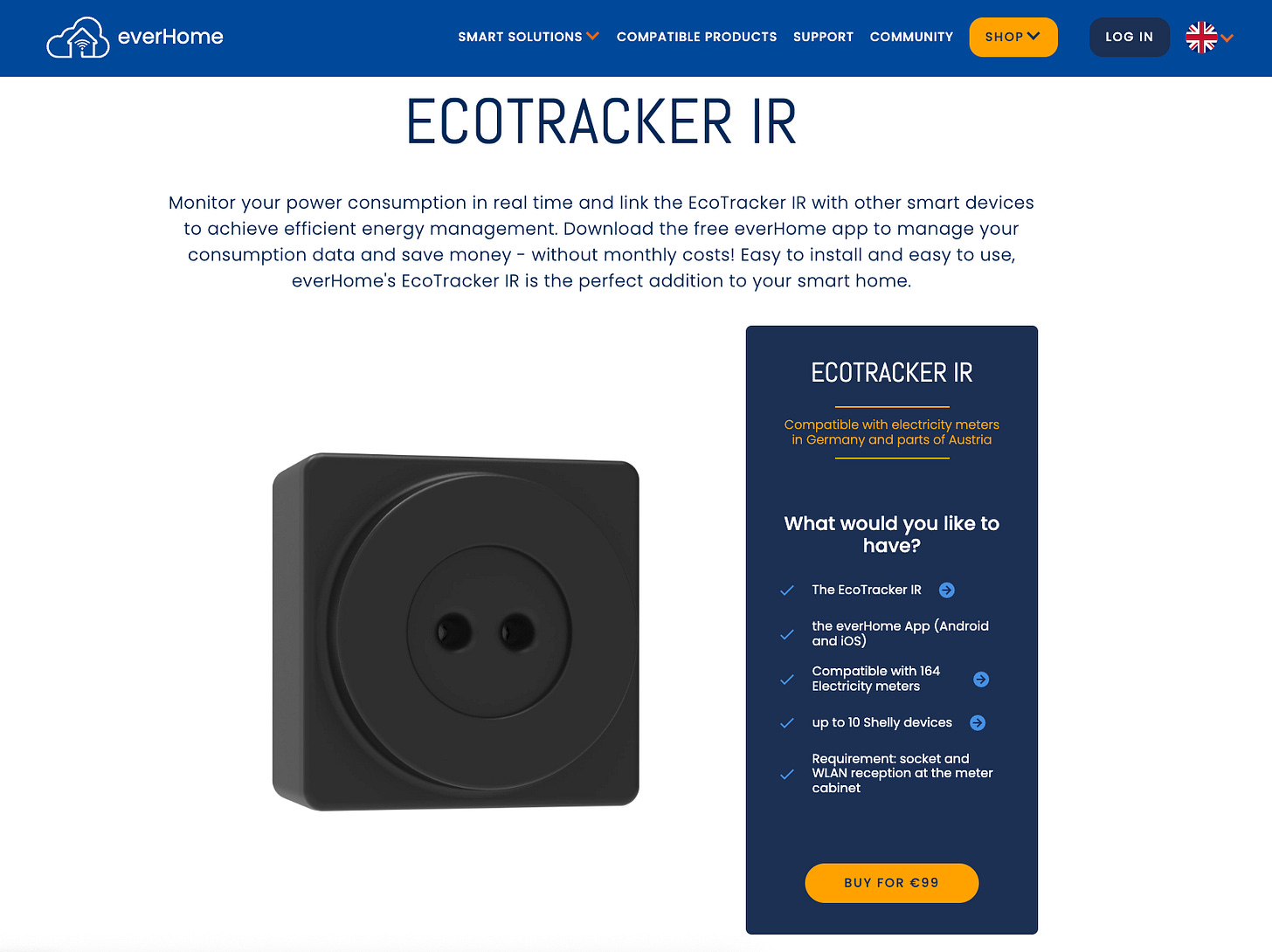From Attic to Million-Euro Revenue: How Sebastian Terhorst Conquers the Smart Home Market with Everhome
Volume #19 of "Happy Bootstrapping" Newsletter
Sebastian Terhorst, together with his two brothers and father, has built an impressive hardware company from a personal need. What began in 2015 in the parental attic is now Everhome – a company with 10 employees and a projected annual revenue of €3 million. The special part: all without external investors and with a business model that completely foregoes subscription fees.
This is a summary of Episode 130 of the “Happy Bootstrapping” Podcast (German).
The Birth in the Family Circle
Everhome's story begins with an everyday problem. Sebastian's family was looking for a solution to comfortably control roller shutters via 433 MHz through an app. The existing solutions with cryptic hand transmitters were cumbersome, and a modern alternative was missing. "We basically needed a solution in the family to control roller shutters via 433 MHz. Before, there were hand transmitters with a display that you could program wildly, but not with a proper UI," Sebastian explains.
So the computer science student simply developed a solution himself. The first Cloudbox was born – initially just for personal use. But it quickly became clear: the market had been waiting for exactly such a product. The first devices sold through a simple website that was still hosted in the home office.
The Business Model: Hardware Without Subscription Trap
Everhome pursues an unusual business model in today's times. The Cloudbox is available in different variants (soon to be unified into one) for €199, the EcoTracker costs €99 – each as a one-time payment without any follow-up costs.
"We're personally not a fan of subscriptions. We put ourselves in the customer's shoes and say, okay, I have this device here, would I want to pay two euros monthly for it?"
This philosophy runs through the entire company. Even cloud costs and app updates are included in the purchase price. This is made possible through consistent in-house development: from the time series database to the cloud infrastructure to hardware production, they keep everything in their own hands.
The Game Changer: EcoTracker
2023 brought the big breakthrough – again from a family need. Sebastian's mother had installed a balcony solar system and wanted to know when it would pay for itself. The solution: the EcoTracker, a small sensor that magnetically attaches to the digital electricity meter and reads real-time data via infrared.
The numbers speak for themselves: the EcoTracker now accounts for 95 percent of revenue and has led to a quintupling of the business. Instead of selling through their own shop, Everhome mainly sells through dealers who offer the EcoTracker together with balcony solar systems or storage systems.
Technology: Everything Self-Made
Everhome's tech stack is impressively well thought out. The hardware is based on ESP32 processors with 240 MHz and runs on pure C++. In the backend, they rely on:
Own servers at Hetzner instead of cloud providers
Talos OS with Kubernetes for container orchestration
Go as programming language for all backend services
Self-developed time series database for efficient data storage
"We can work so efficiently with 50,000 devices that it could even run on my laptop here," Sebastian explains proudly. The PCB designs are created in Germany, manufacturing happens in China – with delivery times of just two to six weeks.
The Challenges of Bootstrapping
Not everything went smoothly. Hardware development means upfront investments and the risk of defective batches. "We probably had twelve iterations of the EcoTracker that didn't work," Sebastian admits. Load problems during sudden demand spikes also led to Friday afternoons in crisis mode.
However, the biggest challenge remains financing growth without external capital. Every order in China must be pre-financed, inventory needs to be stocked. Nevertheless, the team sticks to its philosophy: "We're currently not looking for investors. We've done quite well with this path so far."
The Most Important Learnings After 10 Years
Product before marketing: "You make the product so good that people absolutely want to have it"
Maintain control: In-house development from cloud to hardware enables low costs
Think ecosystem: Compatibility with third-party devices instead of isolated solutions
Take customers seriously: Feedback is the most important input for new features
Grow sustainably: Better organic than with external money
Family as strength: "You have a different trust relationship"
With plans for France (EcoTracker Linky) and other European markets, Everhome is facing its next growth phase. The goal remains the same: hardware products at fair prices without hidden costs – all made in Germany, with heart and without investors.
Happy Bootstrapping is a German podcast where I interview bootstrapped founders, indie hackers, and solopreneurs about their startup journeys.
Over the years, I've connected with many successful entrepreneurs who have built e-commerce shops, SaaS platforms, mobile apps, content businesses, or hybrid models.
Furthermore I am a bootstrapper myself and growing my DevOps-as-a-Sercice and Web Operations Company “We Manage”.



